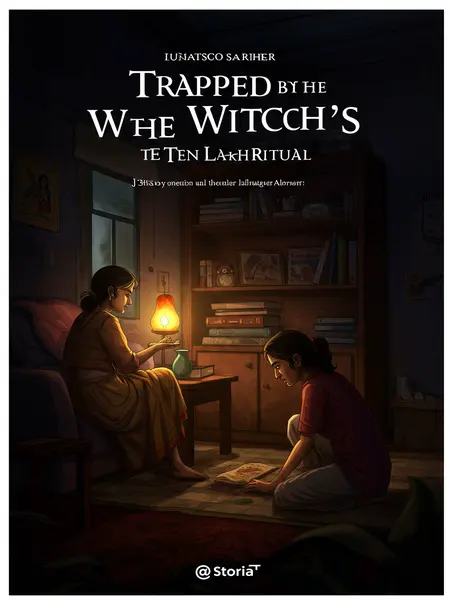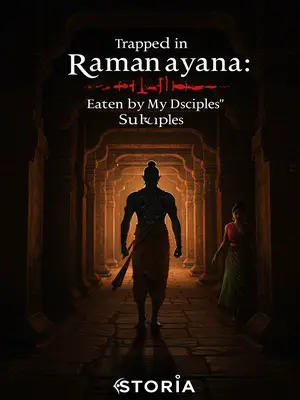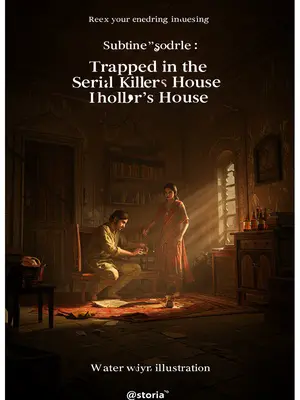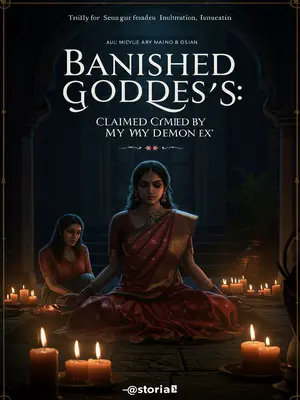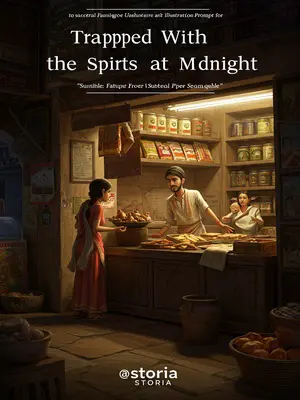Chapter 2: Kamala Aunty’s Rules
I opened it to see a kindly old lady—saree perfectly pleated, bindi bright, bangles chiming. Her smile was pure TV dadi: "Beta, khana khaya?"
She struggled to haul a heavy suitcase, insisted, “Arrey, call me Kamala aunty only, no formality.” Her voice had that mix of warmth and command only grandmothers and milkmen possess.
I took the suitcase—felt like lifting a sack of cement. Inside, a metallic clink: coins? Notes? My palms itched.
When I cracked it open—notes, neat wads of ₹500 and ₹2000, rubber bands so fresh you’d think they were straight from SBI. The smell of money—half bank, half old trunk—filled the room. I swallowed.
"Yeh poora das lakh hai," Aunty Kamala said, like she was offering me a fresh plate of idli. Her pride sparkled in her eyes.
I asked, trying to sound cool, "Aunty, which grave do you want me to burn it for?"
She waved me off. "No need to go out—just burn it at home. There’s a wooden plaque inside."
This was odd. Most people want rituals at the cemetery, under the neem tree or near their ancestral plot. But Aunty Kamala was different—she handed me a spirit plaque, trembling fingers patting it like a family treasure.
I emptied the suitcase, and found the plaque. The writing on it? Not Hindi, not English, not even Bengali or Tamil. The script curled and squiggled, dense as tadpoles.
I squinted under the tube light, considering whether to WhatsApp a photo to my friend or ask the local pandit. But then, I felt too awkward to offend her or admit I didn’t know.
In India, every community has its own script, its own god. I let it go.
Then, Kamala aunty gave me her rules: Burn the money only at rahukaal, 11 p.m. to 1 a.m. I nodded—everyone has their muhurat, their inauspicious time.
Second: All lights off. That was fine—some families want darkness, some want oil lamps. Rituals and superstitions are like salt and chilli—always together.
But the third rule: no mirrors or idols in the room. I paused, rubbing my forehead, letting the tube light flicker above. Mirrors? That was new.
I tried to reassure her, “Aunty, maine toh suna hai, Devi-Maa sab dekh leti hain. Woh sabka bhala karti hain.” But she pressed her lips, eyes pleading. "Nahi beta, not your gods. My people are different."
I understood—it was a matter of faith. Even within Hinduism, everyone has their own rules, their own gods. For ten lakh, I could betray my faith for one night. I looked at Ma Durga’s idol, whispered, “Ma, forgive me. Kal extra phool chadhayenge."
I packed the idol, feeling a prickle of shame, hands trembling. When I tried to open the door, the bolt wouldn’t budge. Stomach twisting, I peered through the peephole—Aunty Kamala outside, locking it with a thick iron chain.
“Beta, samjho na. Ten lakh is not a joke. If you run away, what will I do?” she called, voice sweet but sharp.
She was right—burn the money, get ten lakh. Run, and maybe get twenty, but at what cost? This aunty was no fool.
So I sighed, resigned. Maybe next time I’d ask for half in advance. For now, I had to play along.
She told me to put the idol outside the window. I felt like a thief, holding Ma Durga like contraband. “Aunty, rakh doon window ke bahar?” She just nodded, eyes averted.
Her hands shook, waving me off. “Arrey beta, kal subah koi le jayega. Don’t worry.” Old age, I thought, making excuses for her.
Then she insisted: all mirrors out—even the bathroom one. "Toota hua mirror bhi chalega—bus, andar nahi hona chahiye." I smashed it with a hammer, glass scattering like ice. My mother’s warning rang in my head, but for ten lakh, I’d risk a little bad luck.
Soon, workers came—three men in blue overalls, welding security bars to my window. The whole mohalla must have been gossiping by now.
Silver lining: at least the neighbours wouldn’t peep in. I set up my clay pot, agarbatti, and candles like a nervous bride’s father prepping for shaadi rituals.
But when I opened the cupboard for the clay pot, I found a Mahabharata sticker inside—Bhishma Pitamah, white beard and all, staring up. I hesitated, fingers trembling. This sticker had been there since childhood. How could I peel it off?
I closed the cupboard, remembering Dadi’s advice: if you can’t follow every rule, at least don’t disrespect the gods. Bhishma would understand.
